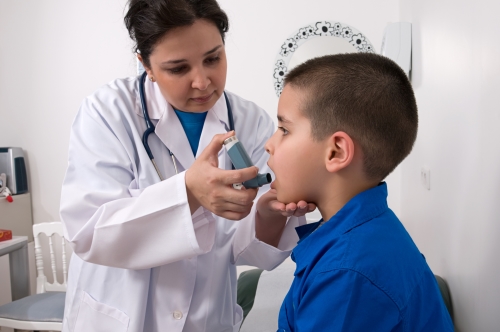Maybe you’re familiar with the saying, “Life is not measured by the number of breaths we take, but by the moments that take our breath away.”
It’s an inspiring sentiment. But if you have a child who struggles with asthma, you probably process those words through an entirely different filter than most. In America, more than 25 million children and adults cope with the condition on a daily basis, according to the Centers for Disease Control and Prevention.
Asthma can be a chronic disease that can cause wheezing, coughing, tightness in the chest, and breathlessness. Fortunately, asthma is treated with inhaled albuterol and, in some cases, medication that treats inflammation of the airways and helps prevent symptoms and attacks (inhaled corticosteroids)
Asthma can run in families, so if it runs in yours, be alert for its symptoms when your children are young (generally, children with asthma display symptoms by the time they are 5, but asthma can occur at any age).
Here are a few primary symptoms to watch for:
- Persistent coughing – tight cough and multiple coughs in a row (especially at night),
- Wheezing or whistling upon exhaling
- Difficulty breathing and rapid breathing that causes the skin around your child’s neck or ribs to pull in more than usual
In addition, here are a couple common asthma triggers that you can watch for and help your child avoid:
- Irritants in the air including cigarette smoke and strong odors
- Allergens, including excessive pet dander and dust mites.
- Upper Respiratory Infection ( common cold) and other infections
As I mentioned, asthma can be controlled with the use of inhalers and medications prescribed by your pediatrician. Because asthma symptoms and attacks can come on suddenly, your child should always have his or her inhaler with them wherever they go.
If you are concerned that your child has asthma, be sure to do the following:
- Make an appointment with your pediatrician. Your pediatrician can guide you through the necessary steps to determine if your child has asthma, and then formulate an action plan to help get, and keep, their asthma under control
- Make sure your child gets the influenza vaccination each year.
- Keep your house as dust-free and odor-free as possible, and don’t allow anyone to smoke inside.
In the interest of brevity, I’ve only scratched the surface about how to recognize and manage childhood asthma in this post. There is a tremendous amount of additional helpful information online, including from the American Lung Association, the Centers for Disease Control and Prevention, and Kids Health.
While asthma can be a serious, lifelong medical condition, it is highly treatable and in many cases many children may “outgrow” their asthma. When managed properly under the care of a pediatrician, children with asthma can enjoy moments in life that take their breath away … in the most wondrous meaning of the phrase.



